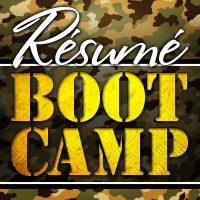 Whatever the reason is you’re looking for a new job, you’re going to need a résumé. And, you want one to stand out to an employer and make them take notice of you in a positive way. So, what do you do if your work history has a few gaps along the way? With typically only one minute to grab someone’s attention with your résumé, prospective employers sometimes don’t take the time to investigate little potholes along a job seeker’s workforce journey. Employers see work gaps frequently, but what they really want to see is an individual’s career growth and progression. So, if you’re currently experiencing a few of those gaps in your work history, what can you do now to help your résumé compete with the elite?
Whatever the reason is you’re looking for a new job, you’re going to need a résumé. And, you want one to stand out to an employer and make them take notice of you in a positive way. So, what do you do if your work history has a few gaps along the way? With typically only one minute to grab someone’s attention with your résumé, prospective employers sometimes don’t take the time to investigate little potholes along a job seeker’s workforce journey. Employers see work gaps frequently, but what they really want to see is an individual’s career growth and progression. So, if you’re currently experiencing a few of those gaps in your work history, what can you do now to help your résumé compete with the elite?
Format your résumé into a functional format. The functional format focuses on your actual skills and accomplishments rather than on the dates you worked at a job or your job titles. When you arrange your résumé by your skills, you’re highlighting the main points of why an employer should hire you.
Align your skills with the job you’re applying for. Be specific about your skills and relate them to the job you’re applying for. It’s important to keep things relevant. If you’re applying for a job as an administrative assistant, the prospective employer probably doesn’t want to know that you also have a knack for laying concrete. Instead, list out relevant skills like your knowledge of Microsoft Office, the ability to book meetings using Outlook, and experience in coordinating multiple events or meetings at a time.
Include your accomplishments. You’re trying to tell an employer why they should choose you over the other job applicants. This is your time to wow a potential employer about what you have achieved during your work history. Listing these helps combat a work gap by showcasing that you do have experience and good skills that achieved results. This showcases you as a more serious job candidate. Again, keep your accomplishments relevant to the job you’re applying for, but be sure to target your proudest achievements.
List your volunteer experience. Do you volunteer for an organization? If so, include that in your work history section. It doesn’t matter if you got paid or not. It’s still work experience you can include to show you haven’t been sitting around during your time away from a job.
These are a few tips to help you out. Sometimes an employment gap cannot be avoided, but that doesn’t mean you’re not qualified for the job. In addition, one more piece of advice is to create a cover letter to go along with your résumé. In your cover letter, be succinct about your work gap, but use this as an opportunity to better explain your work history. Apply these tips to help your job search, and don’t let a work history gap derail your career plans.


